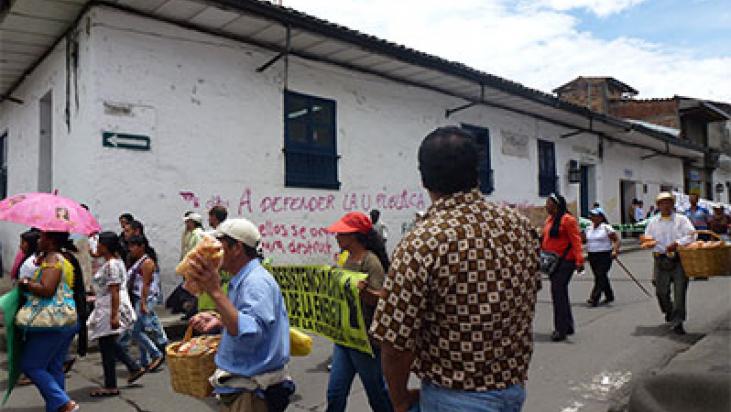International Budget Partnership condenses the discussions which took place in Washington D.C, last April, in an event about tax policy, austerity and human rights in Latin America, with many members and committed partners of the Global Alliance for Tax Justice. Read the article:
“Economic downturns often leave governments with substantially reduced revenues at the same time as they face increasing demand for public services by those affected by the crisis. Too often governments in this situation will choose to curtail spending in an effort to control public-sector debt, an approach that can have significant consequences on the poorest and most vulnerable. Yet, as IBP has argued before, such budgetary decisions and their effect on marginalized communities are strictly bound by international human rights law.
The question of how austerity measures have threatened human rights in Latin America was discussed in April 2016 at a gathering of civil society representatives and officials from international governing bodies in Washington, D.C. The event was convened by the Center for Economic and Social Rights(CESR) along with la Red de Justicia Fiscal de América Latina y el Caribe (Tax Justice Network of Latin America and the Caribbean); Oxfam International; the Latin American Network on Debt, Development and Rights (Latindadd); Civil Association for Equality and Justice (ACIJ); the International Budget Partnership (IBP); the Institute for Socioeconomic Studies (INESC); Foundation for the Advancement of Reforms and Opportunities (Grupo FARO); Fundar, Centro de Análisis e Investigación (Fundar, Center for Research and Analysis); and Dejusticia.
Two Commissioners of the Inter-American Commission on Human Rights, James Cavallaro and Paulo Vannuchi, introduced the panel speakers, who discussed the importance of tailoring fiscal policy to protect human rights, and of the effects of recessions and slow economic growth on people living in poverty. Representatives from INESC, Dejusticia, and Fundar spoke on the human rights impacts of emerging fiscal austerity measures in Brazil, Colombia, and Mexico, respectively. In Brazil, INESC reported that the falling price of oil prompted huge cuts to state expenditures, primarily to social spending. The health sector faced drastic cuts, notable considering Brazil has constitutionally enshrined health as a human right.
Dejusticia described how state revenues in Colombia heavily rely on exporting oil, with the price declines leading to a significantly lower revenues. In the face of this shortfall, coupled with the drastic devaluation of their currency, the government made large cuts to education and social protection programs. In Mexico, according to Fundar, the fall in revenues from oil, along with a drop in production, led to key infrastructure projects being stalled and cuts to entitlement and other social development programs. Fundar argued that these cuts have contributed to rising inequality and to the growing numbers of Mexicans who now live in poverty (currently 46 percent).
CESR’s Niko Lusiani explained how countries that have made the deepest cuts to programs that foster social and economic rights (e.g., social programs like income supports, health care, food programs, and education) have had the largest increases in wealth inequality and poverty. Cuts to government programs and regressive tax policies (i.e., taxes that take a bigger share of the income of those with less than those who are better off) place an undue burden on the poor while the wealthy are largely unaffected. Put simply, austerity measures have hit the poorest and most marginalized groups in society the hardest. Panelists argued that a human rights-friendly approach to aiding the economy is necessary to prevent profound inequality. They laid out alternatives to governments other than relying solely on spending cuts to control debt in tough times. For example, addressing tax evasion, particularly by corporations and wealthy individuals, can result in huge revenues gains without adversely affecting human rights.
The panel observed that by implementing regressive tax policies and cutting programs that low-income citizens depend on, governments discriminate against the poorest citizens. They argued that equality and nondiscrimination have international recognition as essential to promoting human rights, and so countries must work to employ fiscal policies that do not discriminate against poor people and other marginalized groups.
Further, they called on civil society organizations (CSOs) to work to hold governments accountable for human rights that are often neglected during times of economic crisis. CSOs can do so by collecting and analyzing data on austerity measures, and their effects on the lives of citizens, and use this evidence to advocate for better fiscal policies. Offering alternatives to austerity measures is a necessary step; fiscal discipline does not have to come at a cost to the social programs citizens rely on. Protections of basic human rights should not fluctuate based on the economic situation in a country. Governments have a duty to protect their citizens, particularly those most vulnerable to these difficult times.”
Link to IBP article here.
Photo: Inyucho
